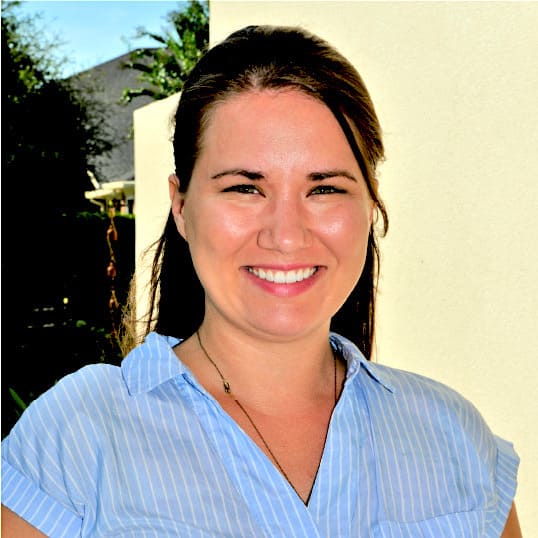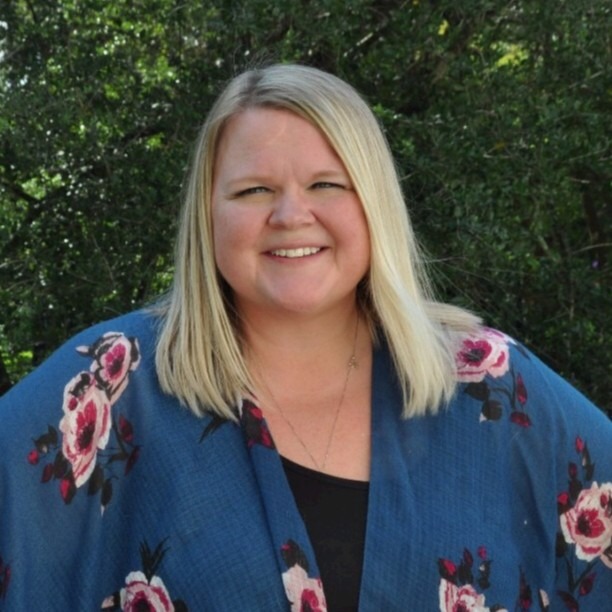These are challenging times, perhaps the most defining in all of our lifetimes.
Weeks from now, there will be a whole new normal, laying on top of the scar tissue being created for us and of us now. Even through the bleakness of the daily news we see glimpses of fine and selfless acts, as the strength of human nature is revealed.
We can observe new normals, in society as a whole, and in our industry, some of which will live long after the current crisis has run its course.
Our natural products and nutritional supplements industry has the betterment of human health and conditions, societal awareness, passion and enthusiasm and positivity and at its core. It believes in proactive health management. Generally, we are with – or ahead of – the curve in doing and recognizing the right thing.
In this collective post, the Trust Transparency Team, in a stream of consciousness format, presents to you their observations and insights as our society goes through one of the most traumatic episodes of history.

Traci’s Take:
The adage the only constant in life is change has never been more true. It feels like every hour there’s a new report, new study, new devastating news. Honestly, it can be overwhelming and make it very difficult to focus.
Last week’s news was especially troubling – the US FDA announced that it would stop domestic inspections unless there’s cause (they stopped international inspections last week).
Our industry is already attacked for quality issues. But now some are saying this gives the bad guys a free pass. Let’s hope not.
Most of us are in the supplement, food or natural products industry because we want to help people live a healthier, better quality life. And, most are trying to follow the rules.
Continuing the analogy path, it’s just a few bad apples that are souring the barrel. Now, more than ever, we need to come together and demonstrate rigorous self-policing.
We’re also seeing more businesses moving straight to online selling where the barrier to entry is often lower. In a favorite saying of Len, “many of those business don’t know what they don’t know.” Those of us who have been around the industry for a while have an obligation to help them as everyone benefits when our industry is trusted. And COVID-19 is offering a tremendous opportunity to rebuild trust that’s eroded over the years. If we provide products that deliver what they promise, and are transparent in our undertaking, that will be a win for all.
Speaking of transparency, we all have an obligation to be transparent and to humanize this experience. Companies whether big or small are made up of people.
On the consumer side, brands that have a relationship with their consumers perform better. Your consumers trust you, so tell them what’s going on. Show the people working behind the scenes, let them know your challenges and how you’re trying to do what’s right for them and your team. I’ve loved seeing examples of companies converting their manufacturing to items in the greatest need. Distilleries are now producing hand sanitizers and 3M is focused on making more ventilators.
On the business-to-business side, it’s also essential to be transparent. Everyone knows there are supply chain issues right now—be upfront about it and don’t under any circumstances cut corners. It will hurt you in the long run.
None of us know when this will end, but we’re all in it together. Let’s support each other.
 Nathan’s notes:
Nathan’s notes:
A lot has changed in the past few weeks. I’m sure many things will return to ‘normal’ in time … but for others, we will no doubt see a ‘new normal’ arising.
Adjusting and evolving to these new norms, both in our everyday lives and in our function as part of the nutritional and natural products industry will be vital.
Like many of people, in the last week or so I’ve been thinking a lot – and making lots of notes on lessons I think we can take from some of the things that are happening right now. Here are my top observations and take-aways:
1. Shopping dynamics are shifting – very few want new or niche options
While gaining ‘true’ market insights in a time like this is very difficult, it is also very interesting to watch consumer dynamics and shopping habits shift as people look to stock up. The consequences of which will no doubt be felt by companies and industry categories for years to come.
I remember in the build-up to a hurricane a few years ago I saw multiple posts on twitter showing supermarket shelves and fridges completely empty – aside from the vegan corner, which remained remarkably well stocked. Even in an emergency, people won’t shift their purchase behaviors. All over the world, people are panic buying pasta, but not the expensive stuff, nor whole-wheat or anything ‘fancy’. There are bare shelves where the mega-value sacks of white pasta once were, yet you can buy all of the spelt pasta that you like. It’s the same with bread. Shelves are empty of sliced white, bread rolls etc … yet I happily picked up a loaf of ancient grains and seeds. Fridges once filled with ready-made sandwiches are bare too. But the sushi fridge next door has product. You see the pattern, and maybe this will change as people become more ‘desperate’ for any sort of food. But right now is an interesting time to witness consumer purchase dynamics.
The lesson is that healthy and niche market products will ALWAYS be niche market products. Even – or perhaps especially – in times of panic, people will not shift habits and try something new. In times like this, your low turnover SKU will not suddenly become a high turnover SKU – more likely it will become a no turnover SKU.
- The death of cash?
It has been happening for quite a while now, but the COVID-19 situation seems to be really driving home the trend to go cashless. Given how notes and coins are generally passed from person to person, and are not the cleanest of things to handle, there is little surprise to see stores switching to card-only payment systems. The few cafes and shops that are open near me (all serving take-out only now – see point 4) have banned cash. They don’t want to touch our filthy, germ-ridden money – and who can blame them?
Lots of small and trendy street-food vendors long-since moved cashless, simply for ease. But given the current concerns many other vendors are suddenly seeing the benefit of going cash free too. It has been reported that in China, authorities are trying to track down and destroy bank notes that have been handled by people with COVID-19. No such action is taking place anywhere else. But it surely makes you think. Many businesses are now taking matters into their own hands and moving to card-only payment… but will they every really look back?
The lesson here is that although we’ve been heading towards a cashless society for a while anyway, the risk of transmission from coins and bank notes is prompting many more companies to move cashless. Can you see them moving back when all of this is over, or will this be a ‘new normal’ … like the way we now all accept added security at airports in a post-9/11 world?
- Now is the time for self-reflection: Get your shit in order
Many of us have seen our personal and business schedules for the next two to three months absolutely decimated – and an enforced work-from-home policy kick in that is really restricting how we operate. Those responsible enough will already know that now is not the time to push new product. Nor is it the time to try and pitch for lots of new business. Let’s be honest – everyone has other priorities right now.
So, what can we all be doing – aside from home schooling the kids and trying to connect to video conference calls. Well, how about taking some ‘me’ time – both personally, and as a business. This is a great time to review your life, your goals, your company strategy … and to make new plans for what comes later. With several hopefully obvious exceptions to this, there are many in the industry that will have less to do for a while. Use this time wisely to think strategically and review your business direction. If you’re in lockdown, you have literally nothing else to do for the next few weeks! You might only be a year into your three year plan, you might have literally finished a review just a month ago – do it again, with fresh perspective, and without the time pressure of making that meeting / deadline / trade show.
The world is going to change. Business is going to change. Your plans will need to change too. You may as well plan for it while you can’t go out.
- Crisis brings out creativity, and community spirit.
‘Transferable skills’ are not just for people, all businesses have them too. And at times of (inter)national crisis, its amazing to see how agile and innovative companies can be.
There’s a real entrepreneurial – but community minded – spirit coming out of many businesses right now. Big and small companies are showing their human side and being more ‘startup’ in their attitude. A lot has been said (in the UK at least) about the need for more things like ventilators and protective equipment – and that manufacturing businesses who usually make things for aerospace or cars, for example, are starting to turn their factory floors into production facilities for helping the effort. But outside of the desperate need for healthcare equipment, people are starting to apply the same logic to their own businesses and lives.
Many are starting to realize they cannot do what they usually would, but given there is a need for something similar, they are turning their hand to that. There are so many wonderful examples of companies adapting to the current situation – transferring labor, skills, and outputs to something new and useful. This is a wonderful thing for many reasons; firstly the business may otherwise have to close its doors, and secondly because the new output helps the greater good. People stay employed, and good things happen.
A few examples are breweries and gin distilleries ceasing normal production to shift to now making alcohol sanitizer. Food supply chains for pubs and cafes are also being repurposed or modified. Some are simply shifting to a takeaway model others are recreating meals as chilled ready meals. I also saw the head chef of a well-regarded restaurant offer himself, his staff, and their food supply chain, for use in healthcare settings. If there is a nearby kitchen – or even a food van – he has offered to help cater for the additional people and staff that will be straining the system.
The lesson here is that we all have transferable skills, including our businesses. Sometimes we spend so long doing one or two specific things, we forget to look at the big picture and see how those skills and facilities can also be used in other ways. Stay agile and try to keep your business and community going by shifting focus. And remember your new skills and opportunities when you plan for life beyond this mess (see point 3).

Len’s lessons:
I’ve said before that we work with amazing people, produce great and helpful products and do good work. That trifecta has been evident these past few weeks. From the rescheduled arrangements and alternative strategies executed after the canceled Expo West, to shout outs and support over the next few weeks, this industry’s voice and role in society health and the economy has been evident.
It’s been evident in supporting the policing of practices antithetical to our core beliefs such as those exploiting the current crisis for personal and corporate gain.
And it’s been evident in coverage of our marketplace as we’ve watched demand for immune products and other categories soar.
The Natural Products Industry and Essentiality
There has been much discussion over years about the natural products role in nutrition and health. From supplements to healthy alternatives, we supply products that support better health and nutrition. It’s always been a factor in our appeal to legislators, especially in the supplement realm, but science and current dialogue, and products flying off shelves, support the claim that we are an essential part of the health system.
It’s been a factor this week as we try to maintain our place as an essential purveyor of supplement and healthy and natural foods options, even as non-essential business close around us
Takeaway:
We are a part of the health system and that comes with accountability (read visibility and risk) as well as opportunity. We need to ensure we remain part of the conversation through this and beyond. I’m reminded of the fact that with many of our products, we are the canary in the calming, and need to understand that, not get ahead of ourselves, and support what we do with science, every time. We often reach only a fraction of the population. This is a problem and an opportunity. We need to understand that though for the reality that it is.
Tangible support for those less fortunate:
There are countless examples of companies, including retailers, offering support for those less fortunate or compromised that are emerging as lightning rods. Not surprisingly, the natural and nutritional products industry is stepping up to the plate in spades with its commitments and support, whether in establishing ongoing supply confidence, or direct product offerings. An example from a couple days ago from Dang Foods Founder & CEO Vincent Kitirattragarn:
“Times like this remind me how important packaged food is for people’s livelihood. Without food science and long shelf lives we’d see an even bigger run on groceries, but the food distribution system is running relatively smoothly. It makes me proud to be a part of the #CPG industry. To assist our neighbors during this unsteady time, Dang is donating 20,000 bags of coconut chips to the Alameda food bank during the Bay Area shelter-at-home period.” Other companies are also hugely community focused, providing product to those that need it. There’s another great example from Nature’s Path.
Takeaway:
We should be proud to be a part of this industry. The early pioneers of our space believed that their success needed to be shared with others, including the communities that nurture them. With acquisitions and new entries from mainstream CPG, Pharma and other sectors, this unfortunate environment gives them a first-hand glimpse of why this space is so special, and the potential to do good is so high. Hopefully, the passion of the pioneers is more manifest throughout the entire industry.
The emergence and importance of telehealth, digital dashboards and digital services:
Our industry has been a beneficiary of the move to digitalization and online for years. Narrative in many of our product categories suggests that certain products are flying off shelves at record pace. Within the practitioner space, dietary supplements have been offered as part of the telehealth environment, and some of our personalization offerings have moved to facilitating compliance though engagement, dashboards and other digital services. Based on the past few weeks, there is no turning back this tide and we will see it applied to more product classes and channels. Learning too has migrated online, especially this past week, and we, as industry should and must take note.
Takeaway:
The acceleration of online services in learning and engagement will ultimately lead to the creation of new tools – watch for them. In the meantime, the window of acceptance for consumers and businesses in our industry and supply chains to truly collaborate in the offering of digital tools, dashboards and services has swung wide open and will not shut any time soon. We need to be mindful of this and part of any and all responsible and sustainable solutions offered.
Gathering actionable market intell in an age of ‘no normal’:
My colleague Nathan referred to this next thought in part and so I’ll combine a few things together in a slightly different spin. There are so many market dynamics at work right now and varying models and outcomes that it’s really difficult to predict 3 months out, let alone longer. This applies to all industries, but there’s a few nuances for ours. I too, observed shoppers going to ’tried and true’ rather than some of the trendy, newer entrepreneurial products on grocery shelves. For instance some of the plant-based alternatives were still on shelves while staples were out of stock. Eventually, though, all products moved. Interpreting consumer behavior in normal times can be challenging, let alone in an unprecedented environment with no normals. We will try, we will over-interpret, we will err, we will regroup and do it all over again.
Takeaway:
We often forget that we operate near the center of the natural products universe and while we may be the canary in the coal mine for new ideas, not all ideas make good sustainable business ideas, and separating fad from over-arching trend can be tough. when pressure sets in, consumers revert to comfortable as they lose many other comforts. Some of these behavior reversals will sustain. Watch for them.
Renewing the innovation cycle:
Out of crisis, comes ingenuity and brilliance. As I saw quoted recently in the Washington Post, while working from home during the Black Plague, Isaac Newton had his annus mirabilis, the “year of wonders,” in which he made huge discoveries in calculus, options and eventually gravity. We won’t all have such an impact on society, but new norms and ways of thinking, especially in crisis, can change patterns of innovation significantly. We are already facing disruption on an immense scale. There are few rules for us to look to understand what will happen, creating a fertile ground for innovation. Some will come immediately form the current crisis, others will be second and third level removed. Still more will come from the enforced. isolation.
Forbes here discusses five predictions for innovation leaders in the time of Coronavirus, including hyper-collaboration, ‘Kindness will be king’, Next generation germ fighting, In real life 2.0, what happens as we get back together, and ’New story arcs and characters.
This article in Entrepreneur discussed Why Recession Can Lead to Reinvention, noting two fundamentals, first the economic fundamentals have and should be strong, and second, millennials have yet to hit full stride.
Finally, this article, also from Entrepreneur talks about black swam events and innovation, as the course of health, economics and society as a whole gets fundamentally altered. Specifically this article notes supply chain, digital strategy, and mental health through a remote environment. All of those factors will impact us in the natural products space.
Takeaway:
Whether it’s next gen funding, to virtual teams acceleration, to health solutions to supply chain management solutions and clarity, this crisis will change the way we operate in the future. It will fuel new unfettered ways of thinking and the thinkers not blocked by status quo and rigid and linear thinking models will not only survive, they will thrive.
Supply chain repatriation and disruption:
This one is rather obvious so I won’t go on at length. In the US, we have been seeing increasing calls for repatriation for a few years, but in the aftermath of this crisis, action will be taken. Consumers will demand it. True, many of the supply chains may be too far gone, but most will need to be at least relocated so that China is no longer sole source. Another fallout of the current environment is the increasing consumer awareness that most of our ingredients come at some point from China. This has long been an industry transparency collision. Consumers were never aware of this fact. This article in Forbes sets the stage for that movement.
We will therefore see immediate movement towards ensuring secondary sourcing of most materials, and an ever increasing drive to invest locally.
Takeaway:
We will see much more pressure for supply chain transparency. We will see the continued evolution of solutions that deliver this and increased value for what they provide. Industry must also get ahead of this transparency collision and companies must develop a narrative. Categories as a whole where the supply chain cannot be effectively repatriated should probably get their story straight too.
In closing, we’re not sure our crystal ball is better than yours. We’d love to hear your thoughts.
~Len, Nathan and Traci






